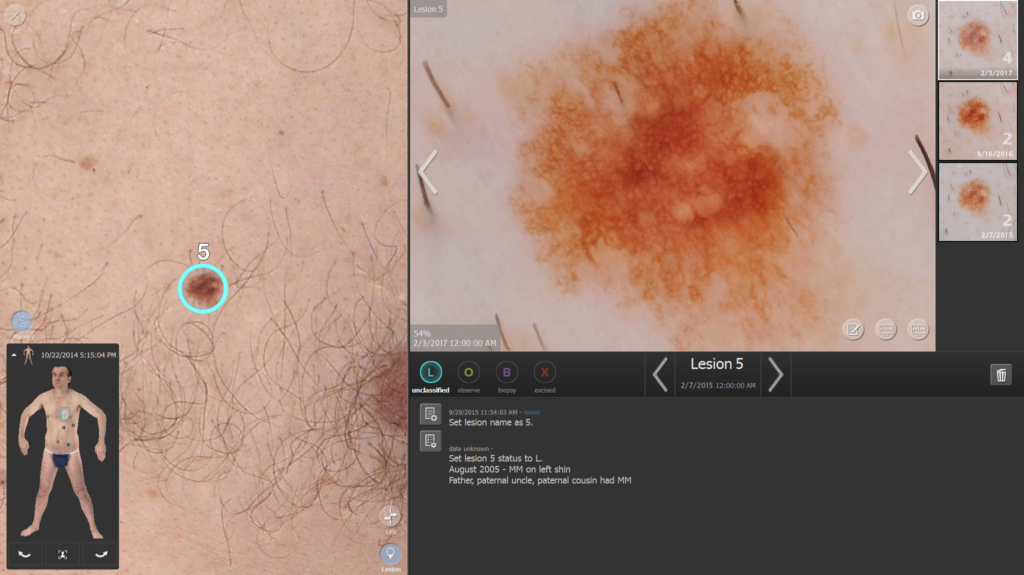Avatar Imaging’s Melanoma Screening
The most advanced melanoma skin examination.
Receive Your Melanoma Skin Check Today
Here at Avatar Imaging, we have your skin health at the forefront of our minds. While we focus on screening for all types of skin cancer, checking for melanoma skin cancer is a crucial part of our service.
Melanoma Skin Check Melbourne
Melanoma is a type of skin cancer that originates in the pigment-producing skin cells that give colour to your skin, hair, and eyes.
Out of the 3 main categories of skin cancer, melanoma is the least common. However, it is the most dangerous form of skin cancer and if not treated early can lead to significant consequences including a higher risk of cancer spreading to other parts of your body.
If you have any of the following risk factors for melanoma, we recommend that you book a skin cancer check with us at Avatar Imaging today:
- Excessive sun exposure as a child
- History of sunburns
- Suspicious spots, new or an existing mole
- Family history of melanoma
- Having fair skin, red or fair hair, or light eyes




Why is early detection with a melanoma scan so important?
Like all types of skin cancer, there is a greater likelihood of melanoma being treatable when it is detected early. With early detection, this type of skin cancer has less of a chance to spread to other parts of your body, therefore, removing the possibility of a challenging treatment like chemotherapy, radiation, or targeted therapy. If you suspect you have any sort of skin cancer risk or think you are showing signs of skin cancer, it is essential you receive a melanoma screening at your earliest opportunity.
Whether you’re worried about your own skin or a family member is at risk of developing skin cancer, our advanced skin cancer clinic strives to give you peace of mind about possible skin cancers.
What does Avatar Imaging’s skin examination for melanoma include?
At Avatar Imaging, we have two tools available for our melanoma skin check to ensure all existing moles are captured for the best possible diagnosis.

Vectra WB360 Scanner
The Vectra WB360 Scanner is a 3D total body photography tool that records 92 images and creates a 3D Avatar of your body for evaluation of normal moles or a suspicious spot.


DermoScan
The Dermoscan provides high-resolution magnified images for early diagnosis of melanoma.
Want to get the most out of your melanoma skin checks?
Say goodbye to skin check apps or other inaccurate skin cancer checks. Avatar Imaging is one of the most advanced skin cancer clinics you can trust.